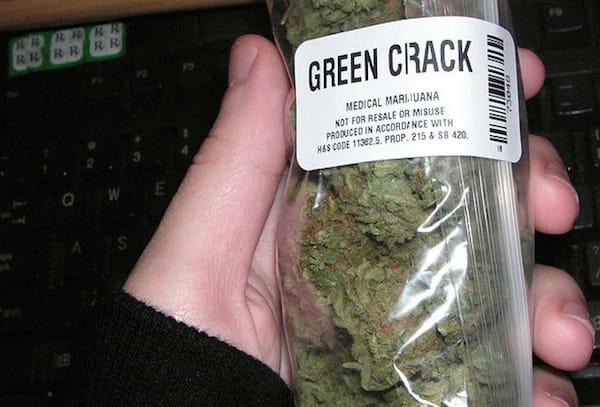Quasi-legal Medical Marijuana Has Become a Dangerous Charade


Medical marijuana in California was instituted with the best of intentions by the passage of Proposition 215 in 1996. It mandated that marijuana could be grown and cultivated legally for personal use by those with a recommendation from a doctor and their caregivers. Marijuana unquestionably can relieve nausea from those undergoing chemotherapy and help with a host of other symptoms as well. But what began as a genuine effort to help the suffering has metastasized into something quite different with potentially nasty and dangerous consequences.
Metroactive, a weekly semi-alt newspaper in San Jose, recently ran a story about Cannabis Clubbing. They detailed several clubs they saw as better than the multitude of other medical marijuana clinics in the area. One club has a vaporizer and comfy chairs for regulars to chill in. Another clinic features marijuana with a whopping 86% THC content for “ultraconcentrated relief.” One hotspot stays open until 10 PM and has a crush of customers in the final few minutes, which seems suspiciously like the crowd at a liquor store before it closes. Pardon my skepticism, but I’m just not seeing the medical value here. Marijuana ads filled the pages around the Metroactive article. Maybe my glasses need cleaning, but I didn’t see ads that focused on medical benefits.
This is not meant as a criticism of Metroactive. They are reporting the news in an area where marijuana is de facto legal and the ads are completely legal. But, and this is the crucial point, marijuana is not legal. It is quasi-legal. Scofflaws find pliant doctors to give them a recommendation. People walk the street smoking marijuana. Laws are gently ignored or routed around.
Why it’s just like Prohibition was in the 1920’s, isn’t it? Friendly little Mom and Pop marijuana clinics invite you in now just like speakeasies did in the days of illegal booze. What could be wrong with that?
Behind those speakeasies in Prohibition were nasty people with guns. Bootleggers routinely killed each other. Cops were bribed. The entire system was corrupted. If something is illegal or quasi-legal and there is serious money to be made, criminals and organized crime will move in.
The LA Times reports that marijuana clinics do indeed make large profits and that sometimes the people behind them are less than upright citizens. In one series of raids, $700,000 was recovered along with an AK and other weapons. The silent partner in six clinics was a convicted drug dealer.
a) Why is a convicted drug dealer allowed to have ownership in medical marijuana stores?
b) What do AKs and large amounts of cash have to do with being “compassionate caregivers”?
If there’s money to be made and laws are murky, crime and corruption will follow. That’s not healthy. Instead, marijuana should be legalized and taxed heavily.
What do you think about the quasi-legal status of marijuana?



